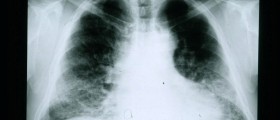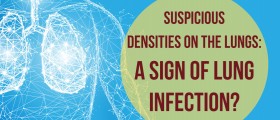
Pneumonia is another name for the inflammation of lungs, which happens because viruses, bacteria or other microorganisms cause the infection. There are different types of pneumonia, depending on which parts of the lung or lungs are infected. Every year more than half a million of people gets pneumonia, but today this condition is easily treated successfully. However, there are complications which are possible, and some of them can even be life-threatening in certain cases. The complications are much more likely to develop in people who have some sort of heart or lung problems, or if they are older. People who smoke are also a risky group when it comes to the possible complications of pneumonia. If left untreated, or treated improperly, it can cause serious consequences and complications, thus prolonging the period of recovery.
Pneumonia can lead to difficulties with breathing, and in such cases, it can have fatal consequences, because the inflammation fills the air sacs in the lungs thus endangering the possibility to breathe. Also, it is possible for the infection to spread through the bloodstream to other organs, thus complicating the condition and the treatment. Pleural effusion is also a possible complication, and it means that fluid in such cases accumulates between the inner side of the chest wall and membrane which covers the lungs. In this way pleura is also inflamed, and the fluid, which builds up between the two layers can easily become infected as well. This condition is called empyema. Pneumonia can lead to the forming of a lung abscess, which can cause further complications and consequences, and it can also lead to acute respiratory distress syndrome, or in short ARDS, which has as a consequence the fact that your body and lungs will be deprived of oxygen, since it also involves difficult breathing. These are only some of the complications, but there certainly are many more. Since none of them is less serious than others, it is very important not to ignore the first symptoms which might imply pneumonia, such as fever, followed by muscle ache and weakness, and coughing which is gradually worsening and which is usually followed by mucus. Pain in the chest should also not be neglected, and the sooner medical help is required the better the chances for quick recovery are. All of this mentioned so far implies that pneumonia does not have to be a serious condition, and that consequences can be avoided if it is treated in time and if doctor’s advice is carefully and meticulously followed.

















Your thoughts on this
Loading...